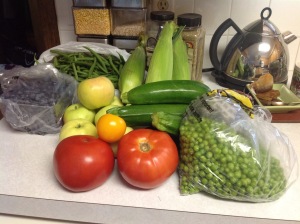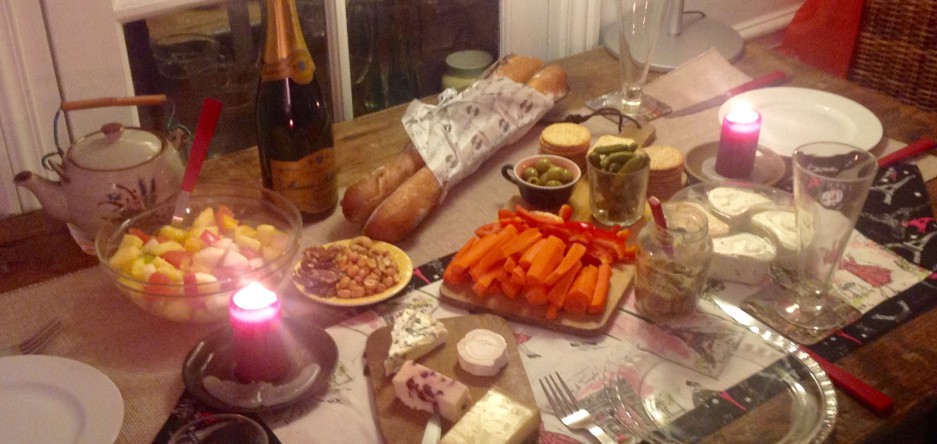Not long after his delightful meal with Simon, Jesus sends out the Twelve to preach the arrival of God’s kingdom (Luke 9:1-17). He tells them to travel so lightly as to not even carry any money or food, but depend on the hospitality of strangers.[1] When the disciples return bursting with stories of their missionary journey, Jesus takes them away to the town of Bethsaida for respite and fellowship. But crowds follow, intent on seeing and hearing Jesus. By late afternoon, the disciples begin to worry about the size of the crowd and the approaching evening. Jesus has a simple reply when they ask him what all these people are going to do about the evening meal. He says, “You give them something to eat” (Luke 9:13).
Here, Jesus quickly becomes the host of a very simple (bread and protein), yet very large meal. He breaks the bread and fish, thanking God for providing them. Not only does everyone eat some, they all have their fill. We shouldn’t be surprised that Jesus did this. When Israel wandered in the wilderness, God sent manna and quail for food. Even in the middle of our wilderness experiences, if we trust God to provide there is always enough. The point is, when the Bread of Heaven hosts a meal, no one goes away hungry, and there are always ample leftovers.
In the next post, #25, we will look at the connections between meal and gospel.
~Julie A.P. Walton, Ph.D.
[1] Compare this to today, when, on long trips we either pack a large cooler, or stop at fast food places along the way. Our self-sufficiency keeps us from the need to depend on strangers and assures that we maximize our ability to get things our way.
Featured image credit: http://www.dreamstime.com/royalty-free-stock-photography-miracle-bread-fish-image9906677

